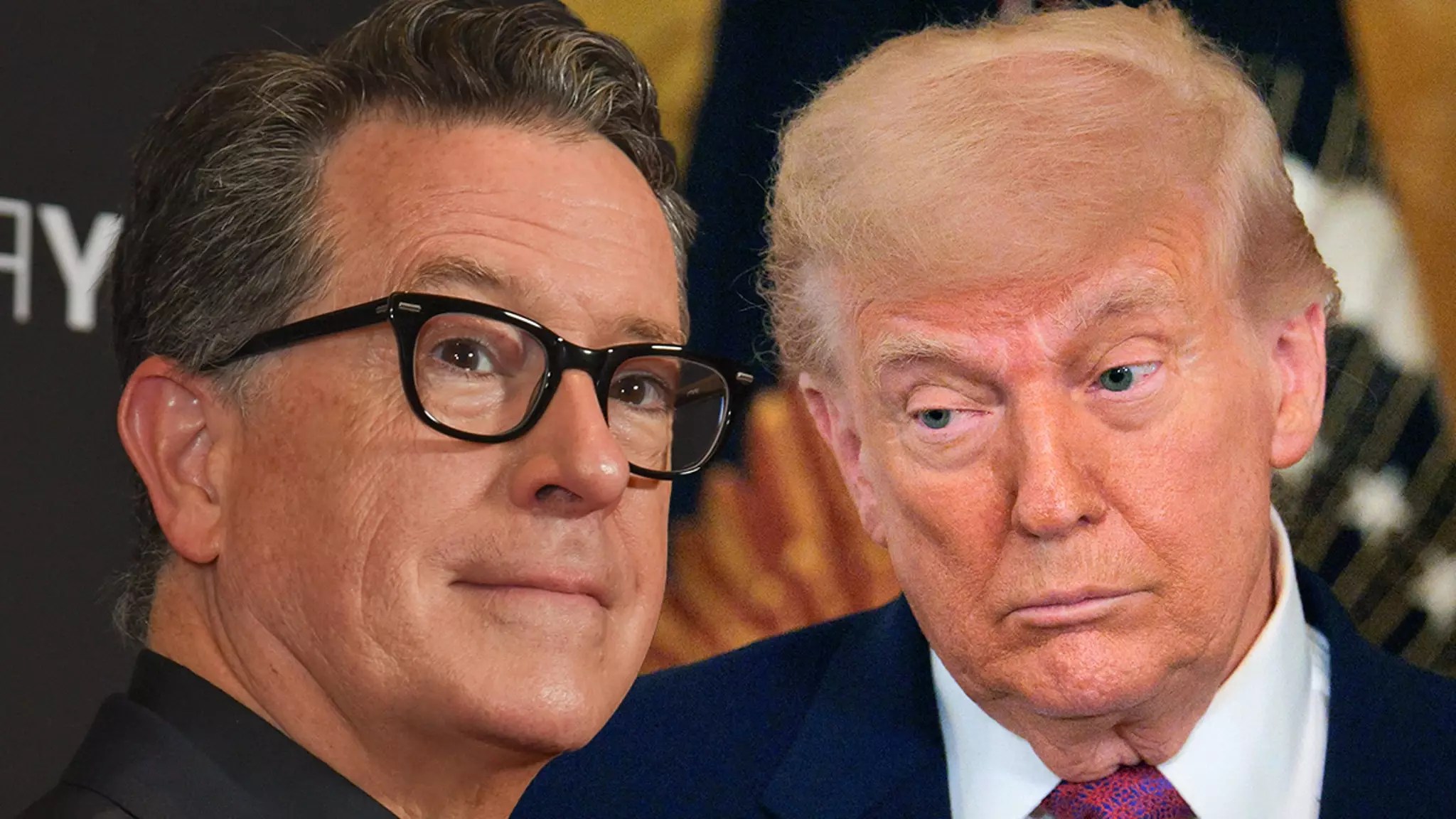Stephen Colbert’s recent outburst in the wake of CBS’s decision to end “The Late Show” in 2026 is more than just a moment of television spectacle; it’s a visceral declaration of fearlessness in an era dominated by sanitized narratives and corporate interests. By unleashing a profanity-laden tirade directed at Donald Trump, Colbert underscores the importance of speaking truth to power — unfiltered, unapologetic, and defiant. His declaration, “Go f*** yourself,” seals his commitment to abandoning the diplomatic veneer that often characterizes mainstream media, signaling a shift toward raw honesty that resonates with a disillusioned populace craving authenticity.
This act of protest is significant beyond its shock value. It highlights a growing frustration among journalists and entertainers who feel constrained by corporate pressures and political repercussions. Colbert’s unapologetic stance exemplifies a broader movement where truth-telling becomes an act of rebellion, risk, and integrity. In a political climate rife with misinformation, censorship, and intimidation, such bold language serves as a rallying cry — a refusal to compromise core values under the guise of diplomacy or professionalism.
Media’s Complicity and the Rise of Political Partisanship
The controversy surrounding CBS’s decision is deeply intertwined with the complex relationship between media corporations and political power. Colbert’s pointed critique of CBS’s parent company, Paramount Global, and their settlement with Donald Trump over the “60 Minutes” interview exemplifies the uncomfortable reality of corporate influence. Describing the $16 million payout as an “extortion fee,” Colbert exposes the uncomfortable truth: media outlets often operate at the intersection of profit and political survival, making them reluctant to challenge powerful figures like Trump.
The claim that “The Late Show” was canceled for financial reasons seems increasingly suspect when set against the backdrop of political intimidation. Colbert suggests that fears of retribution and vengeful actions by Trump and his allies have cultivated a climate of censorship. Institutions that should be bastions of free expression are instead bowing to threats and self-censorship, effectively surrendering their independence. The implication is clear — the real reason behind the cancellation is not economic decline but the fear of challenging a corrosive political environment.
Furthermore, Colbert’s comments reinforce the idea that entertainment and journalism are no longer separate spheres — they are both battlegrounds for truth and influence. His willingness to confront CBS’s complicity openly hints at a larger crisis: when institutions prioritize profits or appeasement over integrity, democracy itself becomes compromised.
The Cultural Significance of the Last Stand
The reactions from fellow comedians and media personalities reveal a fractured landscape of loyalty and resistance. While stars like Jimmy Fallon and Seth Meyers acknowledge Colbert’s courage, others, like Jimmy Kimmel, have expressed outrage at the broader corporate moves, and critics like Dave Portnoy see Colbert’s defiance as arrogance fueled by capitalism’s darker underbelly. This divide illustrates that in the current climate, standing up for truth is not universally celebrated — it’s often met with resistance, accusations of self-interest, or skepticism about motives.
Yet, despite these divides, there’s a shared recognition that Colbert’s digital-era bravado symbolizes something vital: a demand for honesty in a time when truth is elusive. His refusal to step back, to remain silent while his show is set to end amidst industry upheaval, turns the cancellation into a symbolic act of resistance. The act of openly criticizing powerful figures and institutions exemplifies a new kind of media resilience that is desperately needed in an era of misinformation and corporate silence.
By breaking the silence and voicing his outrage, Colbert reminds us all that media figures are more than entertainers; they are custodians of the public square. His courageous stance may ruffle feathers and threaten corporate interests, but it also reignites a vital conversation: the imperative to maintain integrity and truth in journalism and entertainment, despite intimidation or economic pressure.
In an age where corporate interests often overshadow public interest, Colbert’s unabashed honesty and defiance serve as a powerful reminder of journalism’s core purpose: to challenge, to question, and to speak truth — no matter the cost. His last stand is a testament to the enduring need for courage in the face of power, inspiring a generation to expect more from their voices in the media.


Leave a Reply